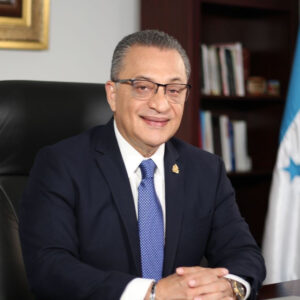Marcio Sierra Discua, President, National Commission of Banks and Insurance of Honduras
 |
Since November 2021, when Hondurans elected Xiomara Castro as their first female President, the principle of gender equality has come to the forefront of national efforts to achieve comprehensive, inclusive and sustainable economic development.
Following the election, Honduras launched a major institutional reform with the creation within the National Commission of Banks and Insurance (CNBS) of an Office of Financial Education and Inclusion and Gender Management, the first of its kind in Central America.
|
This was accompanied by the creation of policy measures and a financial inclusion strategy which aimed to expand access to financial products and services among vulnerable populations, with a focus on closing the gender gap.
This emphasis on women’s financial inclusion forms part of broader national efforts to improve women’s access to social, political, and employment opportunities, and to tackle gender asymmetries.
These efforts are paying off – the World Economic Forum’s “Global Gender Gap Report 2023” ranked Honduras 53rd out of 146 countries, our best position for a decade, and a jump of 29 places in one year.
At CNBS, we have been working to accelerate gender equality through a number of initiatives, including:
- Producing standard definitions of women-led micro, small and medium-sized enterprises (MSMEs)
- Creating a financial inclusion web portal, featuring dynamic dashboard reports based on gender-disaggregated data which capture the status of financial inclusion in Honduras.
- Producing annual Financial Inclusion and Gender Gap reports
- Updating regulatory frameworks relating to transparency, financial education and credit democratization
- Running information campaigns on financial inclusion and gender
At the end of 2023, 51% of deposit accounts were held by women, while between 2022 and 2023, there was a 17% increase in the total amount lent to women-led MSMEs.
Worth highlighting is the gender balance in remittances, which is much more favourable for women: in 2023, 66% of remittances were destined to women, and just 34% to men.
While Honduras has made solid progress both on financial inclusion and on gender equality, we are conscious that there is still much to do. It is also clear that the two issues go hand in hand: there can be no financial inclusion without gender equality, and no gender equality without financial inclusion. For as long as it takes, CNBS will remain resolutely committed to upholding and advancing both.

 About
About
 Online
Online
 Data
Data



















